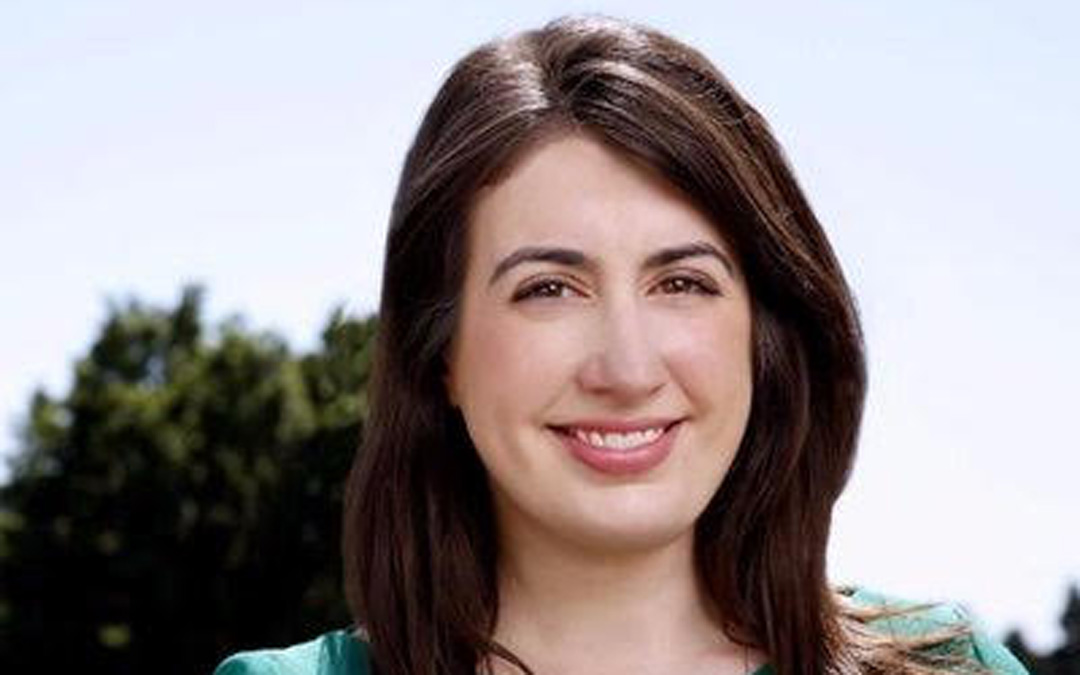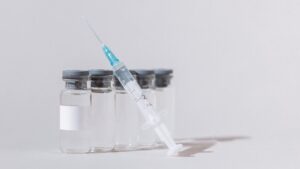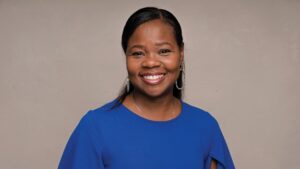Unlike most college seniors, who usually visit exotic locales during their spring breaks, Ali Rogin spent hers recovering from a prophylactic double mastectomy — a decision she made at 18 after learning she is BRCA-1 positive.
“I consider myself extremely lucky I was able to take charge of my medical fate and take action,” says Rogin, now 32. “Everyone has a different journey, but for me and my personality it was a blessing to get this taken care of before graduating college. I was able to enter the next phase of my life with this behind me.”
Rogin is known as a “previvor,” a survivor of a predisposition of cancer who has not yet had the disease.
“I did this to prevent cancer,” she says, “but many woman don’t have that option because they get breast cancer before realizing there is a genetic risk, or there is no genetic risk at all. I’m grateful I could take preventative actions to save myself a lot of heartache.”
It’s been a decade since Rogin underwent her prophylactic mastectomy, but the start of her journey is still fresh in her mind.
Rogin’s story begins in 2008 when she found out that her father, Max Weinberg, longtime drummer for Bruce Springsteen’s E Street Band, is BRCA-1 positive. Weinberg got tested after his sister passed away from ovarian cancer and his niece was diagnosed with breast cancer while in her 20s.
Their family history — combined with their Ashkenazi heritage — made Weinberg a good candidate for a new test recommended by his doctors.
“I remember taking the ferry home from college and I was in the car when my dad told me he got tested for BRCA genetic mutation and that he was a carrier,” recalls Rogin, a New York University graduate and New Jersey native. “I knew almost immediately I wanted to get tested because for me, knowledge is power. I felt once I determined the risk, I could either act upon it or not.”
Rogin met with a genetic counselor and was tested. She then went in for a follow-up, where she was informed of the results.
“I had been prepared for the possibility that the test would come back positive, but it was still hard to hear,” says Rogin, now award-winning journalist in Washington, D.C. “I was at the doctor’s office with my mom, and we both started crying as we learned what the next steps should be.”
At that time, the advice was limited and doctors told Rogin she should plan to have children at a young age because ovarian cancer screening was subpar. Initially, she was not told about the option to have a prophylactic bilateral mastectomy.
“It was odd to think about planning for children when I was only 18 years old,” Rogin says. “I left my first appointment feeling powerless, thinking there was nothing I could really do except wait around until cancer caught up with me. I didn’t take any immediate actions.”
‘Ticking Time Bomb’
Rogin went on to study abroad in Florence, putting the genetic situation on the backburner. When returning home, she saw another doctor who informed her that a prophylactic bilateral mastectomy was an option and more young women were taking that route.
“I didn’t want to start surveillance and MRIs, and have to hold my breath every six month hoping for the best,” she says. “So once I was told I could nip this in the bud, I felt I was able to disable the ticking time bomb on my chest. For me, the choice was a no-brainer, and I’ve never questioned my decision.”
The day of her surgery, Rogin says there was a distinct moment when she knew she was making the right move for herself.
“I was sitting in the waiting room and a man came in with his very pregnant wife, who was clearly there to give birth,” she says. “He had a teddy bear in one hand and a camera in the other, and I felt this sense of power. I was doing something for myself that would ensure I could get to these other major stages in my life.
“In that moment, I felt this hospital represented the circle of life and this surgery was just one stage in my circle of life that would come and go.”
It took Rogin about two weeks to recover from the surgery and a couple months to prepare her body for reconstructive surgery. A year-and-a-half after the surgery, she got a skin graph to create nipples, and about a year after that she got them tattooed to resemble the natural pinkness.
Now, because of her experience, she has chosen to write a book, compiling stories of successful and influential women who battled breast cancer or have been impacted by the disease in a genetic way.
“When I was going through this, there weren’t many women going through it publicly,” says Rogin, who’s worked at NBC, ABC and is currently on the foreign affairs team at “PBS NewsHour.” “When Angelina Jolie wrote her op-ed in the New York Times, I remember feeling personally gratified but also surprised at how much her coming forward with her story affected me, since my surgery was several years in my rearview mirror.”
Her book, with a release date of 2020, will explore approximately 30 women’s journeys while navigating breast cancer disease. The women are of all ages, races, demographics and stages of cancer.
“Breast cancer is a universal disease, it doesn’t discriminate,” says Rogin. “But no two people have the same experiences. I realized there were individual testimonies but no compilation of these stories. You are told to write what you know, and few things I am more intimately familiar with than what it’s like to go through a prophylactic double mastectomy.
“At the core, these stories are about women overcoming obstacles that affect so many of us, and you don’t have to be going through this type of cancer to be inspired by them.”
No Right Way
Writing the book is helping Rogin as she looks toward the next steps in her journey. Doctors have suggested she get a complete oophorectomy, removing both ovaries, when she is done having children or by the age of 35, whichever comes first. As she gets closer to that age, she says she is trying to decide what to do next.
“The most decisive thing I’ve been told is to eliminate the risk,” says Rogin. “Yes, I want to have biological children, and it sucks I won’t be able to breastfeed. But ultimately, I want to catch the cancer before it catches me. So if that means I have to get a [oophorectomy], that’s what I’ll do. My husband and I are on the same page, and we will go through this part of the journey together.”
Rogin says speaking with the women for her book helped her learn more about what it may mean to go into early menopause, something Rogin admits she is incredibly nervous about. It has also made her grateful for the preventive options available.
“If doing this book underscored one thing to me, it’s that women’s bodies belong to them and them alone,” she says. “For anyone to pass judgment or not take concerns seriously is not constructive. I’m proud of what I have done. I am a success story for this particular avenue, but I know it’s not for everyone. There is no right way to do this.”





